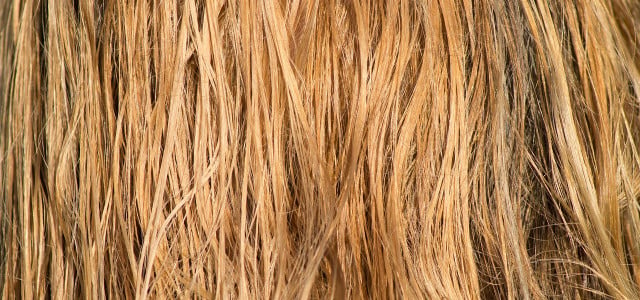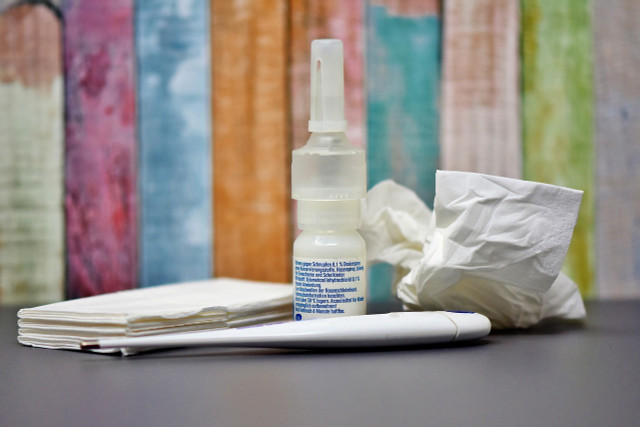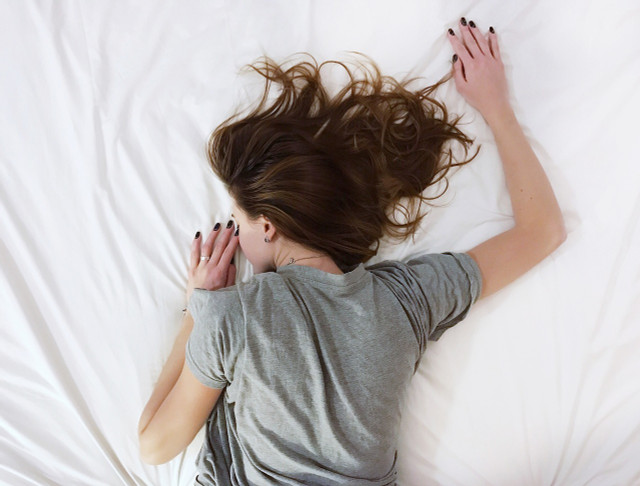
Going to sleep with wet hair can negatively impact your hair and health, but not in ways you might think.
After a hard day, many just want to jump into the shower and then fall straight into bed. If you wash your hair beforehand, there is hardly enough time to air dry. You may not feel like blow-drying anymore or you would like to do without it for ecological reasons.
But going to bed with wet hair can have negative consequences—although the myth that it can easily catch a cold is untrue.
Does going to sleep with wet hair make you sick?

(Photo: CC0 / Pixabay / Ralphs_Photos)
One of the common wisdoms you often hear as a child is that you should always blow dry your hair before you go to bed. Otherwise there would be a risk of catching a cold, as you start to freeze faster. However, this statement is not scientifically based.
Doctor Chriag Shah tells Healthline that colds don’t happen because people are cold or physically cold. Colds only develop when you have contracted a cold virus. This spreads via airborne droplets when an infected person sneezes, coughs, or speaks.
Nevertheless, Dr. According to Shah, one health risk of sleeping on wet hair is fungal infections on the scalp. Fungi find an ideal breeding ground on a wet scalp and damp pillow. On the one hand, these can be fungi that are naturally found on the scalp, such as Malassezia. This can lead to dermatitis, a skin condition, and dandruff.
But fungi, which can cause severe infections in immunocompromised people and aggravate asthma symptoms, also thrive in the warm, humid environment. Therefore recommends Dr. Shah to sleep with dry hair whenever possible.
Sleeping with wet hair: what does it do to your hair?

(Photo: CC0 / Pixabay / StockSnap)
You’re also doing your hair a disservice if you don’t dry it before bed. Dermatologist Adarsh Vijay Mudgil explains the reason for this to Healthline: The hair is weakest when it is wet. If you go to sleep with wet hair and then toss and turn in your sleep, your hair is much more prone to breakage than when it’s dried. Braiding or otherwise tying up your wet hair overnight can cause breakage, especially since these styles put increased tension on the hair.
Whether and to what extent your hair is stressed overnight when it is wet also always depends on how often you go to sleep with wet hair. The individual nature of your hair also plays a role. For example, according to the Sleep Foundation, chemically treated hair is more likely to break than untreated hair.
You should pay attention to this if you go to bed with wet hair
If you are unable to avoid going to sleep with wet hair, the following tips can help you to put as little strain on your hair and health as possible:
- Extend the time between washing your hair and going to bed: This way, the hair can at least pre-dry a little in the air.
- Use a conditioner: A conditioner helps to seal the hair cuticle, reduce friction and make the hair easier to detangle. This prevents hair breakage. There is also evidence that coconut oil also protects against hair breakage.
- Make sure it’s not too cold in the bedroom. The ideal room temperature is between 15 and 19 degrees. In a colder environment, the hair takes longer to dry and bacteria have more time to spread in the moist environment of the scalp and pillow.
Read more on Techzle.com:
- How often to wash hair: So often is healthy
- Make a cold bath yourself: Mixtures for soothing baths
- Is sleeping naked healthy or unhygienic?